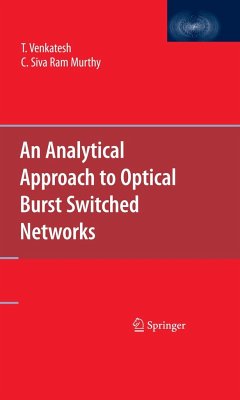
Quality of Service in Optical Burst Switched Networks
Versandkostenfrei!
Versandfertig in 6-10 Tagen
76,99 €
inkl. MwSt.
Weitere Ausgaben:

PAYBACK Punkte
38 °P sammeln!
Optical Burst Switching (OBS) offers a promising switching technique to support huge bandwidth requirements in optical backbone networks that use Wavelength Division Multiplexing. This book details the quality of service (QoS) issue in OBS networks.
Quality of Service in Optical Burst Switched Networks is a broad review and reference for researchers and professionals of Quality of Service (QoS) support in Optical Burst Switching (OBS) networks. The authors start with an overview of OBS architecture, then categorize and discuss existing QoS support in OBS including relative and absolute models, mechanisms for supporting multiple traffic classes, edge-to-edge provisioning, and other non-mainstream mechanisms.
Optical networking professionals will find the literature review as an up-to-date coverage of topics which is both timely and helpful.
Optical networking professionals will find the literature review as an up-to-date coverage of topics which is both timely and helpful.












